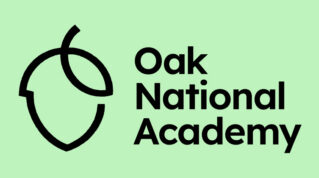Bodies representing ed tech and publishing firms have been granted permission by a high court judge to proceed with their judicial review of the Oak National Academy.
The British Educational Suppliers Association and the Publishers Association launched judicial review proceedings in November.
They said establishing Oak National Academy as an arms-length government curriculum body would pose an “existential risk” to their sector.
The claimants say Oak amounts to an “unlawful state subsidy”.
In the High Court order, Rory Dunlop KC said the argument over whether Oak “is an economic actor” was an “arguable point of law suitable for a substantive hearing”.
In a statement, the claimants said a judicial review had “always been a route of last resort”, but claimed government was “disregarding the concerns of authors, edtech innovators, publishers, schools, teachers, unions, and many others across the school sector”.
“We are left with no other option to protect the autonomy of teachers, the experiences of learners, and the UK’s world-class education resources sector.”
Publishers warn of £60m hit
High Court papers state the Publishers Association estimates Oak’s impact on their members will amount to a more than £60 million hit across English, maths and science resources alone.
The claimants also told the court that “major” investment levels of “well over” £100 million in the sector was at risk of being “undermined”.
The government’s plans for Oak are “unprecedented and unevidenced intervention that risks causing irreparable damage to the school sector as we know it”.
Oak was handed £43 million funding for three years. They will also get up to another £2 million on top to build AI lesson planning tools.
This is “soaking up” public money that could “otherwise be given to schools directly,” the publishers said. “It creates a one-size-fits-all state publisher that promotes a single curriculum, controlled by the ministers of the day.
“No existing provider can compete fairly with this. It will undo decades of work by publishers, tech innovators and others whose expert workforce have created our existing rich range of world-leading resources for school children across the country.”
The National Education Union was originally an interested party in the case, but appears to have withdrawn.
Funding for Oak has increased
Documents submitted to the high court state the full business case for turning Oak into an arms-length body was developing “during the decision-making process”.
That means neither the claimants nor court can “be sure” they have the available documents on which the decision to approve the quango was made, the claim alleges.
The Department for Education has recognised there may be “some negative impacts” on commercial providers because of Oak.
But the claimants said this was problematic because the conclusion was based on the impact Oak had on the commercial edtech sector during 2020 to 2022 – before it became a quango.
During that time, funding averaged £1 million a school term, compared to £4.8 million now.
The impact analysis also does not take into account the “constrained public finances” post 2022.
The DfE disputes claims that Oak is an “economic actor”, arguing it will provide a “public service, free of charge, by a public body”.
The claimants pointed to a case in 2003 when government proposed spending £150 million of license fee funds on creating BBC Digital Curriculum.
After an investigation, the European Commission ruled the free service did amount to “economic activity” and “comprised state aid”.
DfE ‘disappointed’ by legal action
A spokesperson for Oak said they remained “totally focused on serving the needs of teachers, pupils and schools. They greatly value the support of Oak.
“Our independent evaluation shows that exploring evidence-informed curriculum models, and having high quality resources alongside them, reduces teacher workload and improves expertise, wellbeing and retention.”
An evaluation last month found far fewer teachers are now using the online lessons, with most saying it had not cut their workload.
However those using the website did report working fewer hours than those not using it.
The Oak spokesperson added they “want to continue to see a thriving market, and we work with a range of commercial providers to develop and improve our resources.
“Our research has found teachers don’t use Oak exclusively – instead mixing with other providers – and our resources will always be entirely optional.”
A DfE spokesperson said it was “disappointing to see businesses operating in the education sector seeking to undermine plans that have been designed by teachers, are in demand from teachers, and ultimately are in the best interests of pupils up and down the country”.
“We are satisfied that we’ve followed due process throughout. We value the importance of a competitive commercial market and so it will always be teachers who choose whether or not to use Oak’s or any other provider’s materials.”















Your thoughts